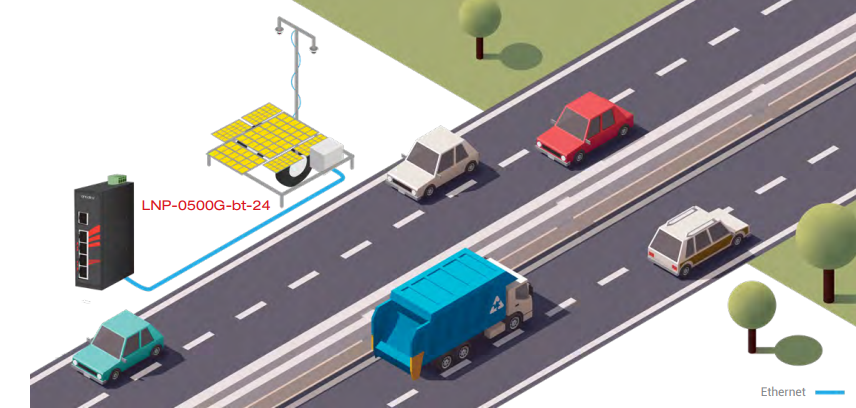The original case study on PoE Switches for License Plate Recognition Systems was provided by our friends at Antaira.
As road transport authorities and state and territory police agencies face increasing demands on their resources. The need for efficient, reliable, and cost-effective solutions is more critical than ever. One of the most impactful technologies to emerge in recent years is license plate recognition (LPR) systems.
Firstly, these systems serve a variety of functions. From enhancing security and fighting crime to managing parking revenue and enforcing toll collections. However, for an LPR system to perform effectively. It requires ruggedised equipment that can deliver consistent power and connectivity. This is where the LNP-0500G-bt-24 industrial PoE switch available from Metromatics shines.
The Importance of Rugged Equipment in LPR Systems
License plate recognition systems are used in outdoor environments. In addition, they are exposed to a range of environmental challenges in which they must operate reliably. Such as extreme temperatures, withstand dust and moisture, and function during power fluctuations. Additionally, since LPR systems often rely on multiple surveillance cameras, they require a stable power source and robust network connectivity to ensure seamless operation.
Application Requirements for LPR Systems
To meet the demands of law enforcement, an LPR system must incorporate equipment that can handle the following requirements:
- Wide Operating Temperature Range: The equipment should be able to withstand extreme environmental conditions, from scorching heat to freezing cold, ensuring uninterrupted operation year-round.
- Power over Ethernet (PoE) Capabilities: PoE technology is essential for powering surveillance cameras and networking other critical devices such as PCs and modems. This eliminates the need for separate power supplies, reducing installation complexity and costs.
- Compatibility with 12VDC Solar Batteries: Many LPR systems are deployed in remote areas where grid power is unavailable. In such cases, the ability to power the system using a 12VDC solar battery while maintaining compliance with IEEE 802.3af/at/bt standards is crucial.
The LNP-0500G-bt-24: A Robust Solution for LPR Systems
The LNP-0500G-bt-24 industrial PoE switch is specifically designed to meet the rigorous demands of license plate recognition systems. Here’s how it addresses the key application requirements:
- Industrial-Grade Durability: The LNP-0500G-bt-24 is built to operate in a wide temperature range of -40°C to 75°C. Therefore, making it suitable for deployment in extreme environments. Whether in the blazing heat of summer or the icy conditions of winter.
- High PoE Output: This switch supports the latest IEEE 802.3bt standard. Hereby, allowing it to deliver up to 60 watts of power per port. This capability is essential for powering modern, high-performance surveillance cameras that demand more power than older models.
- Solar Battery Compatibility: The LNP-0500G-bt-24 can operate on a 12VDC solar battery. Therefore, making it ideal for installations in remote or off-grid locations. Despite the lower input voltage, it can still inject sufficient power to meet IEEE 802.3bt standards. Ensuring all connected devices receive the necessary power for optimal performance.
Conclusion
Investing in a license plate recognition system is a smart move for law enforcement agencies looking to enhance their operational efficiency and effectiveness. However, the success of such a system hinges on the quality of the underlying infrastructure. The LNP-0500G-bt-24 industrial PoE switch provides the ruggedness, power, and flexibility. Ensuring these systems perform reliably, even in the harshest conditions. By choosing the right equipment, agencies can deploy LPR systems with confidence, knowing they have a solution that will stand the test of time and environment.
